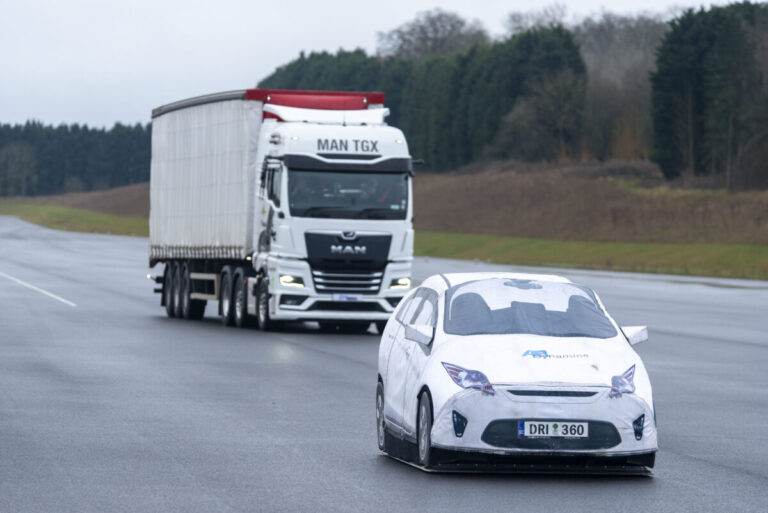Independent test consultancy DRI has been awarded five National Highway Traffic Safety Administration (NHTSA) vehicle safety research contracts. The contracts, which are worth more than US$5m, are for projects designed to advance the safe deployment of vehicle crash avoidance technologies, including ADAS and automated driving systems.
The research projects will establish and validate test procedures to better assess the safety performance of vehicles with ADAS and automated driving systems. DRI will conduct crash data analysis and market research to understand real-world operational performance capabilities, limitations and reliability of existing ADAS technologies.
Using this information, the company will identify, parameterize and trial new ADAS test scenarios. DRI provides testing services at its privately owned test facility near Bakersfield, California.
The first project area covers light vehicle blind spot intervention (BSI) and lane change assist (LCA). Researchers will develop and implement new test protocols based on real-world crash data analysis to better understand and challenge these technologies, with the goal of preventing or mitigating common crashes in lane-change or merging scenarios.
The second area targets vulnerable road user (VRU) automatic emergency braking (AEB) systems. The research will assess the performance of pedestrian AEB technologies (PAEB), particularly in intersection scenarios, and analyze the sensitivity of these systems to various factors such as lighting, weather and pedestrian behavior.
One project will focus on alternative test termination methods, with the goal to develop effective and safe testing approaches for challenging ADAS scenarios. Researchers will explore methods to navigate large test matrices comprehensively while minimizing testing burdens and potential damage resulting from collisions during testing.
Two projects will address heavy vehicle PAEB and BSI systems, to develop and trial new test protocols for medium and heavy-duty vehicles. These protocols will be based on crash data and market research, covering interactions with passenger vehicles and various vulnerable road users like pedestrians, bicyclists and motorcyclists.
Nadine Wong, DRI director of track testing, said, “Basing new test protocols on real-world crash data helps to ensure that ADAS technologies are being thoroughly challenged in ways that will directly translate into safer roads. With our unique perspective of conducting ADAS tests daily for OEMs and NHTSA at our California proving ground, as well as the research expertise we have in-house, DRI is well-equipped to develop and trial future test protocols.”


